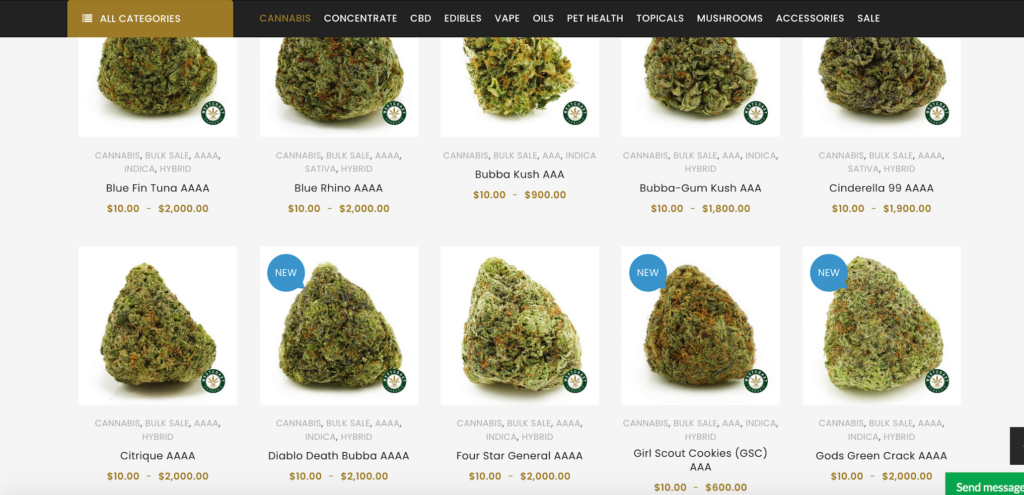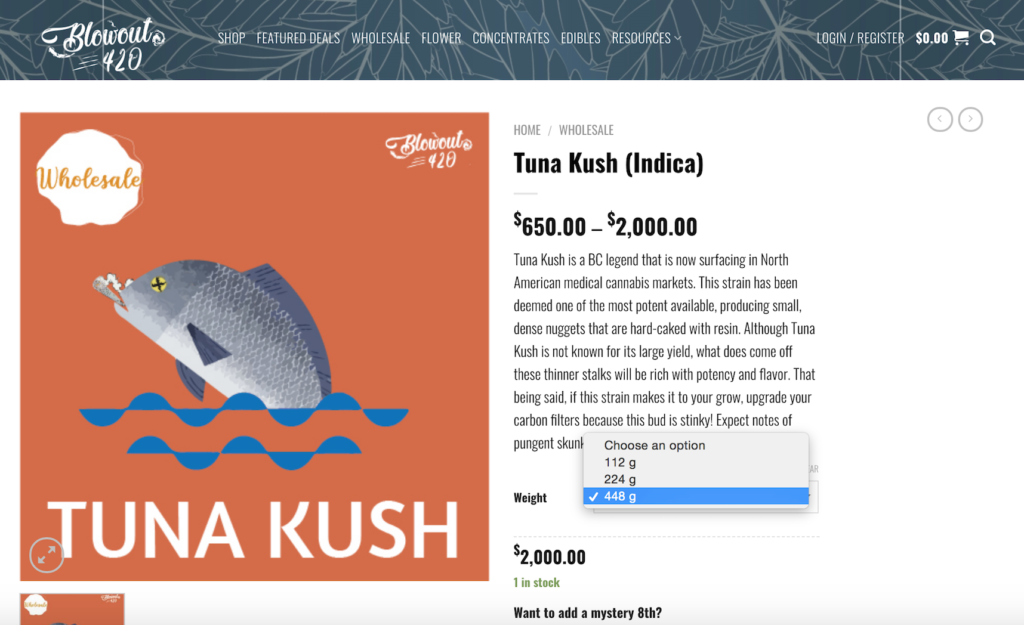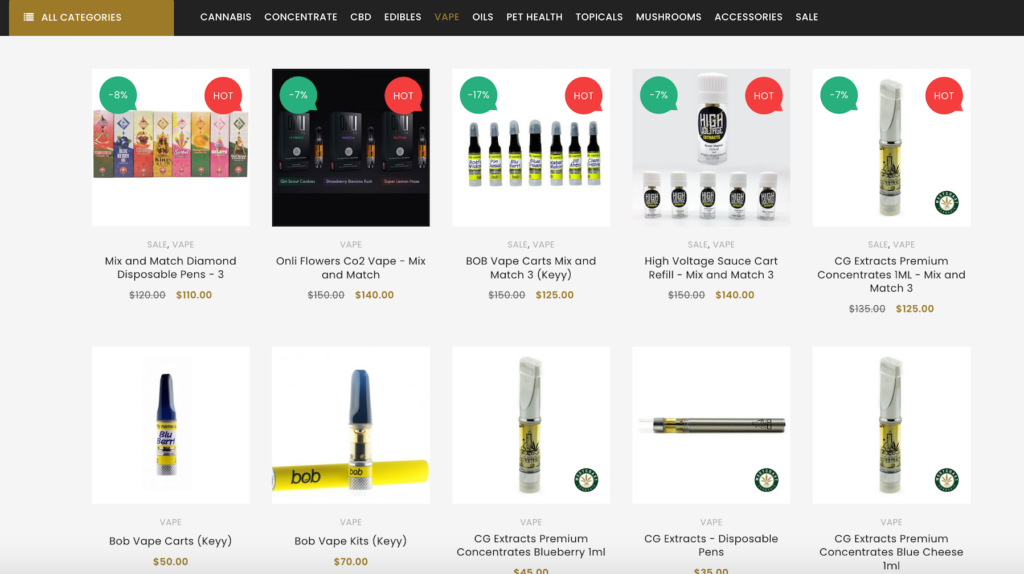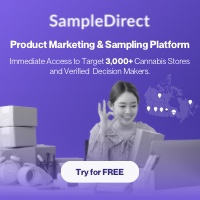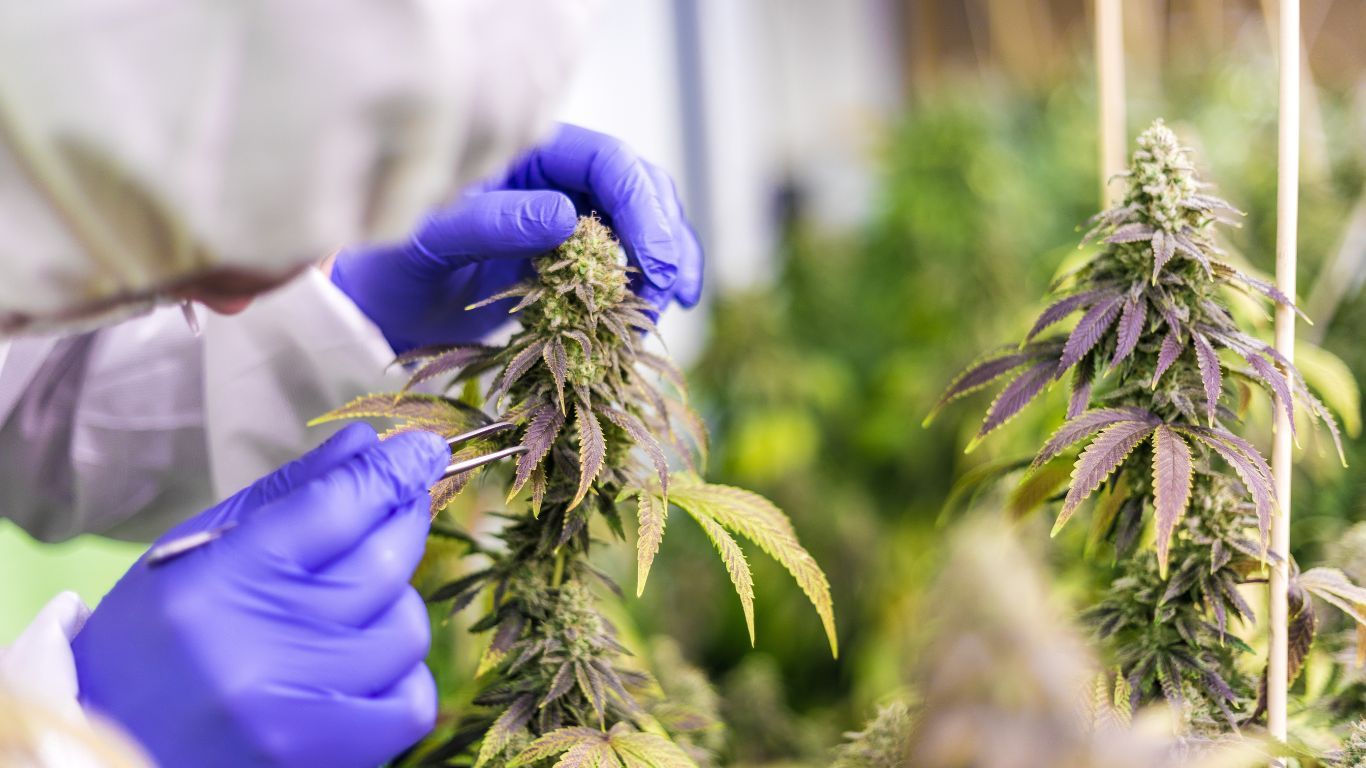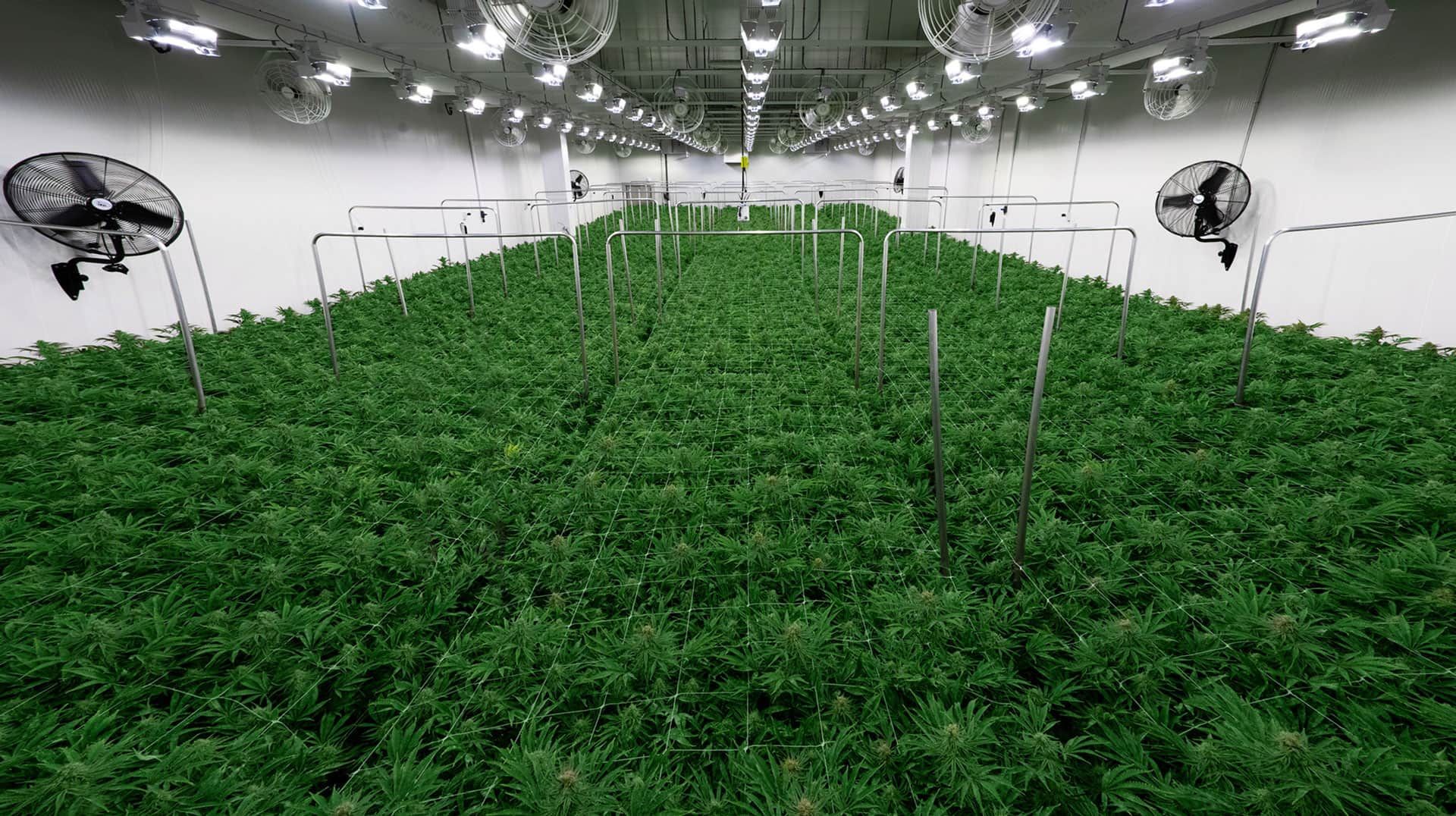
A recent press release from an illicit cannabis retailer highlights the sometimes confusing and under-enforced nature of Canada’s illicit cannabis market some two years into legalization.
Cision Canada, through their Cision’s Newswire Services released a press release this past Monday advertising the services of a company calling itself Blowout420. Although the press release discusses cannabis laws in Canada and implies that it is “100% within the legal parameters of the Cannabis Act”, the website that the company press release directs people to is clearly not a legal company or service.
The professional-looking website operates like many others in Canada, offering online ordering and sales of an array of illicit cannabis products, from dried flower to edibles and concentrates and vape pens. It offers not only deals like $160 ounces of dried flower, but also bulk deals on up to 448 grams of dried flower (One pound), which is well outside the scope of the national 30 gram limit for ordering. The website also offers an array of edibles from a well known illicit company called Twisted extracts.
Many operators in the legal market have expressed frustration at the apparent lack of enforcement in Canada against these types of operators, especially online. Although legalization saw most of Canada’s illicit cannabis dispensaries closing up shop, either voluntarily or at threat of legal action, many operations have simply moved online.
While there have been some notable instances of enforcement against illicit online retailers, including one in Alberta earlier this year, as well as Nova Scotia, BC, and Ontario in general law enforcement lacks the resources to target them all. A popular subreddit geoblocked a forum dedicated to illicit online retailers in Canada earlier this year, although the subreddit is still easily accessible.
Neither Cision or Blowout420 responded to requests for comment by press time.
John Carle, the Executive Director of the Alberta Cannabis Council, an organization that represents the legal industry in Alberta, says the public often doesn’t even understand the difference between legal and illegal sites, especially when they present themselves so professionally.
“The public have no knowledge of the rules, they don’t get it, they don’t understand the difference between legal and illegal retailers, because these illegal retailers are doing a great job of looking legal. How can you expect somebody who just wants to buy a little bit of marijuana and have it delivered to their house to know the difference, especially when companies like newswire are putting out press releases for these companies?
“The consumer doesn’t know that there’s a difference. And it falls on government, law enforcement and regulators, to ensure that the legal option is available for consumers so that they’re not getting trapped into a black market environment.”
Without the added cost or more direct risk of a storefront, these types of cannabis MOMS (Mail Order Marijuana) are an incredibly popular and common way many Canadians still access cannabis. An online search for cannabis in Canada will likely show someone dozens of illicit online portals for every one link to a legal online provincial store. Although their pricing is often quite similar to the legal market, with dried cannabis selling from around $6-12/g, they offer a wider array of products, edibles that are more potent than the 10mg THC limit in the legal market, and an array of extracts not yet widely available legally.
In Ontario, cannabis retailers briefly had the ability to sell online, during certain stages of the COVID-19 lockdown, but that ability has again been removed.
“It’s very difficult,” says Joe Khan, General Manager at Bonnefire, a legal cannabis retailer in downtown Toronto. “We’re on many platforms like Google where (illegal retailers) may also be offering their products to customers. So right off the bat, they have a huge advantage. One of the ways that were trying to navigate through it, is focussing on providing as much information as possible for consumers and the public to understand the rules for cannabis better.”
Jeff Donaldson, a Manager at Blunt and Cherry, also in Toronto, says the province allowing retailers to continue selling online would be one way to better compete.
“I think anyone who carries the OCS product would really benefit from having delivery,” says Donaldson. “A, to drive sales and B, to push out the black market, where cannabis is being sold online with no restrictions or regulations”
Both retail managers says they don’t quite understand the lack of enforcement.
“I do feel that once a lot more stores are up and open theres going to be more of a voice from the industry saying, ‘Hey we need to do something about this and I do think the government will need to act accordingly,” says Khan.
“I think that would come from the provincial and municipal level, too,” adds Donaldson. “It’s easy to find them, so why they aren’t cracking down on them more is beyond me.”
For Carle, the solution is not just law enforcement, but also allowing retailers, at least in Alberta, to sell cannabis online themselves, so that consumers are presented with more legal options when they search online.
“I think the obvious comment from us is that the legalization and restrictive regulatory environment that has been set up in Alberta has not only enabled black market retailers to go online, but it has emboldened them to do things like this. It’s shocking to me that a reputable press release service like Newswire would actually publish something for a black market drug dealer. I’m a little stunned, to be honest.”
“Alberta needs to allow the legal retailers who have invested their own money to open up retail shops and are working hard to be within the regulatory model, they need the opportunity to compete online with the black market.”
Carle argues that by now allowing private retailers to sell online, it leaves open online searches to be met with more illegal options than legal ones.
“The idea that the AGLC has the only legal website in Alberta simply doesn’t work in the modern era where Google will return 10 results on the first page and doesn’t know if they’re legal. But only having one legal website in the province, the AGLC is ensuring that 9 illegal retailers have the opportunity to come up in search results and legal retailers have no opportunity. It’s a pretty simple equation. If we truly, genuinely want to beat the black market and support a legal industry, the legal people at least need the opportunity to be competitive.”
George Smitherman, the President & CEO of the Cannabis Council of Canada, an industry organization representing several licensed cannabis producers, says from his perspective, the issue is more about outcompeting the black market by allowing more retailers.
Citing increasing sales on a month by month basis since legalization, Smitherman says consumers are continuing to move to the legal market as prices come down and product diversity increases.
“If we remain focused on providing consumers with quality products, accessible, a range of prices—which has come a long way in a relatively short number of months—then the evidence is there that the sales will follow,” he says. “Nobody should doubt that the transition of consumers is on, and that’s been demonstrated month after month, but we have some ways to go.”
Smitherman, who acknowledges he’s been accessing and consuming cannabis long before legalization, cautions against demonizing which supply stream consumers choose. Rather than focussing on law enforcement, he emphasizes that the real issue is price, quality, and accountability.
“You talk about the illicit market, but we want to be careful to remind ourselves that there’s only one consumer. We’re in a monthly battle for those hearts and minds of the consumer. And our product is a superior one because we have a safe and regulated product.”
“I think it’s important to remind ourselves that what we’re working to do here is to create in Canada a good, strong, legal framework with quality product that is safely tested, and I think we’re winning those battles,” continues Smitherman. “There are certainly impediments where the regulated ones are paying the extra cost to go the extra mile and when you have this unregulated playing field with other folks that can be frustrating, but nonetheless we’re making progress.”


